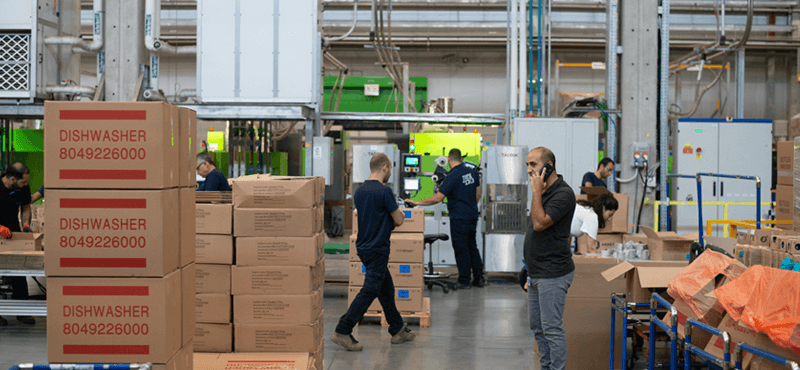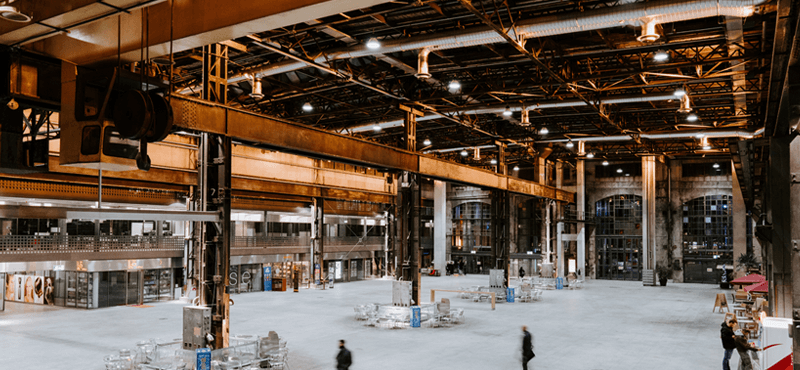
A company needs space for different daily operations. Storage facilities are imperative for keeping produced goods if your business relies on handling them daily. Having a warehouse serves this purpose right. If you lack one which you own, renting becomes the right choice. Another valid alternative is buying a fully-built warehouse. Choosing between the two may be daunting. Each has its advantages and disadvantages.
The best way to choose either buying or leasing is after getting a whole picture of the options. Focusing on your business storage needs can make you come up with a better answer on what to aim for. Here you will find a comparison of the two choices at hand in different ways for your better decision-making.
1. Leasing a Warehouse
Before we fill you in on the details of what buying a warehouse is like, let us look into the leasing of warehouses. In this article, the elaboration on leasing will fill you in on all the information you need to complete your comparison. With both sides of the story, you’ll be able to decide what fits your needs better.
Pros of Leasing
Leasing a warehouse brings a lot of mobility to a business because you can easily decide when to leave. This flexibility is essential for a business planning to relocate to a different place. At times companies open different branches far apart. Renting warehouses is a sure way of making every storage need quickly addressed. Proper management of the many stores is necessary.
The maintenance expenses are not on your side. Since the ownership is on the landlord, it means the repairing work is entirely his or her responsibility. Renovations are sometimes necessary, such as during harsh weather conditions. The owner will come in and do the air conditioning maintenance and services. As a business, this lowers your operational costs in a significant way. Having the property owner care for maintenance gives you the ability to focus on more important issues of the company.
No down payments are required. The traditional warehouse buying processes need some deposit of a certain fraction of the total value. With the leasing, all you need is to pay the monthly rent and an equivalent deposit. This makes the starting capital for using the warehouse relatively pocket-friendlier.

Cons of Leasing a Warehouse
The most significant downside of leasing a warehousing space is the potential cost variability after a renewal of the agreement. Sometimes more government taxes on property owners may end up landing on you through additional rent increases. An increase in property value may trigger the landlord to ask you to pay more. This prompt to renew the leases at more rates makes businesses increase on expenditure.
Next, any improvements you do benefit the owner. It’s possible you’ll reach a point when you feel the need to upgrade the warehouse structure. All the advancements you make sometimes may be permanent, meaning they will be left behind when moving. The property owner is under no obligation (unless agreed otherwise) to refund the renovation expenses.
There is limited growth. It is hard to find a warehouse owner who allows expansion of the property by clients. As you grow, space may become more limited. It may result in looking for larger storage units and signing new leases
2. Buying A Warehouse
This decision is mainly for long-term purposes. It should be guided by your business’ needs for storage space. The need to have self-reliance on storage prompts many companies to build their warehouses. However, it is also typically easy to find already built warehouses for sale, so you can meet your needs for space faster.
Pros
When you purchase a warehouse, that gives you total ownership of the property; you get control over many things with this. One, it is easy to do some expansion on specific structures without seeking permission from anyone. Additionally, a new property tied to your business promotes your growth as a company. Maintenance work may be necessary for quality storage. You can do this at any time at your convenience.
The property will gradually increase in value over the years, adding to your net-worth as a business. When the time reaches to do the selling, the benefits will be all yours. Unlike renting, where the landlord aims to make profits, you will not pay more than the property’s worth. Of course, this is when you take out the utility bills and maintenance costs. The cash flows, in the long run, will be economical.
Moving out of the warehouse may give you the option of renting it out. Consecutively, you will have an opportunity to inject more capital into the firm. It is also likely that the leasing value can be higher than in previous years, depending on the market fluctuations and the local developments.

Cons of Purchasing a Warehouse
The one obvious downside to buying a warehouse is that it requires funds for the initial construction stage or a pre-built structure purchase. Of course, if you have the funds – this is no problem at all. However, if you need to get a loan with interest and you’re unsure of how the project will unfold, then it’s worth re-thinking this decision.
The second downside to purchasing versus renting is that you become responsible for everything at the warehouse. All the duties of repairs fall on your shoulders. This responsibility, therefore, increases some of your recurrent expenditure through repairs.
Having a warehouse as a business is fundamental, especially for certain types of industries. Not everything can be online. The options of either renting or purchasing a warehousing space are favorable to different extents. A business manager needs to evaluate the company and decide on what will work best for it. The guiding principles you need to consider mainly revolve around your business storage needs, future expansion plans, and geographical locations. Seeking consultations with experts can impact making a better decision on either renting or leasing a warehouse.







